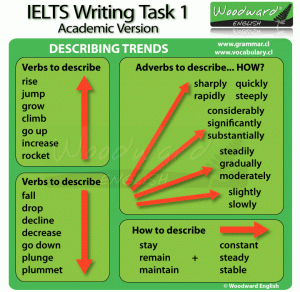نمونه سوالات اسپیکینگ آیلتس درباره نقش دولت (پارت 1 2 3)
در این بخش بیش از 20 مورد از نمونه سوالات اسپیکینگ آیلتس نمره 9 درباره “موضوع نقش دولت” را با هم میبینیم. این مجموعه از آخرین سوالات گزارش شده از سنترهای برگزار کننده آیلتس در ایران و خارج از کشور مربوط به پارت 1، 2 و 3 می باشند و شانس تکرار آن ها در آینده بالاست. در ادامه مطلب همچنین نکات گرامری، لغات و دلایل دریافت نمره 9 را به طور مشخص توضیح داده ایم تا راهنمایی برای علاقمندان باشد. 1000 نمونه سوالات اسپیکینگ آیلتس با جواب PDF پارت 1 2 3 پیشنهاد بعدی ما به شما عزیزان است.
نمونه سوالات اسپیکینگ آیلتس درباره موضوع نقش دولت (پارت 1)
1. Do you think governments should provide free education?
Yes, I believe that free education is essential for creating equal opportunities for everyone. When the government funds education, especially at primary and secondary levels, it empowers underprivileged communities and reduces the gap between the rich and the poor. Moreover, educated citizens contribute more effectively to the economy and social development, which benefits the nation in the long run.
2. How involved is your government in everyday life?
In my country, the government plays a significant role in many aspects of daily life, such as healthcare, transportation, and public safety. For example, public hospitals and schools are largely funded by the government, and major infrastructure projects like highways or metro systems are also government-managed. This involvement helps maintain order and provides essential services to all citizens.
3. Should the government help the unemployed?
Yes, I think it’s the government’s duty to support those who are unemployed. Financial assistance and job training programs can help individuals get back on their feet and become productive members of society. Without such support, people may fall into poverty, which can lead to other social issues like crime and homelessness.
4. What role should the government play in the environment?
The government should take a leading role in environmental protection. It has the authority to implement laws that limit pollution and encourage sustainable practices. For instance, introducing strict regulations on factory emissions or promoting renewable energy can make a significant difference. Citizens can do their part too, but strong policies from the top are essential.
5. Do you trust your government?
To a certain extent, yes. I believe the government tries to act in the best interest of its people, especially in areas like education and healthcare. However, like in many countries, there are issues such as corruption or inefficiency that reduce public trust. Transparency and accountability are vital for gaining and maintaining people’s confidence.
6. Should governments control the media?
Not completely. While it’s important to prevent the spread of harmful content like fake news or hate speech, total government control over the media can limit freedom of expression. A free press is essential in a democratic society to hold leaders accountable and inform the public accurately.
7. What do you think about high taxes?
High taxes are acceptable if the money is used wisely. For example, when tax revenue funds public education, healthcare, and infrastructure, it benefits everyone. However, if there’s mismanagement or corruption, people naturally feel frustrated. So, transparency in how taxes are spent is crucial.
8. How does your government support public health?
My government provides various services to promote public health, such as free vaccinations, health education campaigns, and affordable hospitals. During the COVID-19 pandemic, for instance, the government played a major role in distributing vaccines and setting up quarantine measures to protect citizens.
9. Should the government regulate prices?
In certain sectors, yes. Essential items like food, medicine, and fuel should be price-controlled to prevent exploitation. If the market is left entirely unchecked, companies might take advantage of consumers. Government regulation ensures fairness and affordability, especially for low-income families.
10. Is it better to have a big government or a small one?
It depends on the country’s context. In developing countries, a larger government might be necessary to provide basic services and reduce inequality. In contrast, in more developed nations, a smaller government might work if the private sector can handle certain responsibilities. The key is balance and effectiveness.
نمونه سوالات اسپیکینگ آیلتس درباره موضوع نقش دولت (پارت 2)
Describe a situation where the government did something that impacted your life.
You should say:
What the situation was
What the government did
How it affected you
And explain how you felt about it
Band 9 Answer:
One memorable situation where the government had a direct impact on my life was during the COVID-19 pandemic. In early 2020, when cases began to rise rapidly, the government imposed a nationwide lockdown to contain the spread of the virus. All schools, offices, and non-essential services were shut down, and people were advised to stay home unless it was absolutely necessary to go out.
What stood out to me was the government’s quick response in providing support to the public. They introduced a financial relief package for those who lost their jobs or had their income reduced. In my case, my part-time job at a local café was suspended due to the lockdown. I was worried about my expenses, especially rent and groceries. Fortunately, the government provided a monthly stipend to affected workers, which helped me get through that difficult period without falling into debt.
Additionally, the government ensured that students could continue learning by launching a national online education platform. I was in my final year of university at the time, and thanks to this initiative, I could attend my classes virtually and graduate on time. They even partnered with internet service providers to offer free data packages for students, which was incredibly helpful.
Overall, I felt a deep sense of appreciation for how the government handled the crisis. Of course, no plan is perfect, and there were some delays and confusion at first, but the proactive measures they took really made a difference in my life. It showed me how crucial the role of government is in times of crisis and reinforced my belief that good governance can truly uplift society in challenging times.
نمونه سوالات اسپیکینگ آیلتس درباره موضوع نقش دولت (پارت 3)
1. What responsibilities should the government have towards its citizens?
Governments should ensure basic human rights, such as access to education, healthcare, security, and equal opportunities. They must also maintain public infrastructure, enforce the law, and create a stable economy. Beyond that, governments should protect the environment and invest in future generations through long-term policies. A truly responsible government listens to its citizens and makes decisions based on collective well-being rather than short-term political gain.
2. How can governments reduce inequality in society?
They can implement progressive taxation, fund public education, and provide social safety nets for the poor and marginalized. Additionally, promoting equal access to jobs and resources regardless of gender, race, or background is essential. Policies such as minimum wage laws, subsidized housing, and free healthcare can level the playing field. More importantly, governments must ensure these policies are not just created but also effectively implemented and monitored.
3. Should governments be responsible for creating jobs?
Yes, but to an extent. Governments should create favorable economic conditions that encourage private sector growth, like investing in infrastructure or offering tax incentives. In sectors where the private market fails to generate employment, such as rural development or public health, the government must step in directly. However, it’s also important to balance this with encouraging innovation and entrepreneurship to avoid over-dependence on state-run jobs.
4. How do different governments respond to emergencies?
Responses vary greatly depending on resources, leadership, and preparedness. Some governments act swiftly and transparently, implementing strict safety protocols and providing public support, while others may delay action due to bureaucracy or lack of planning. Public communication is also key—those that communicate clearly tend to gain more trust. The best responses are coordinated, science-driven, and adaptable to changing circumstances.
5. In what ways can citizens influence government decisions?
Citizens can vote, join protests, sign petitions, or use social media to express their views. They can also contact representatives directly or participate in public forums. In democratic countries, such engagement is vital for a healthy society. When citizens stay informed and involved, they hold their leaders accountable and help shape policies that reflect the people’s needs and values.
6. Should governments invest more in the arts or in science?
Both are important, but investment should reflect a country’s priorities. Science is crucial for technological progress and solving global problems like disease or climate change. However, the arts enrich our culture, foster creativity, and preserve national identity. Ideally, a balanced investment strategy ensures that both sectors thrive, contributing to a well-rounded and forward-thinking society.
7. What are the consequences of government corruption?
Corruption undermines trust in public institutions, misallocates resources, and widens inequality. When funds meant for healthcare or education are stolen, it directly affects the quality of life for ordinary citizens. It can also discourage foreign investment and slow economic growth. Most importantly, corruption erodes democratic values and fuels public dissatisfaction, sometimes even leading to political instability.
8. Do you think governments should control how people behave?
Governments should regulate behavior only when it protects public interest, such as enforcing laws against violence or promoting road safety. However, they should avoid over-regulating personal freedoms like how people dress or express opinions. A healthy society needs both structure and liberty. Excessive control often leads to resistance, while thoughtful regulation encourages responsible citizenship.
9. How do governments balance national interests with global responsibilities?
It’s a delicate balance. While governments must prioritize their citizens, they also share responsibility for global challenges like climate change and human rights. Participating in international agreements, providing aid, or collaborating on research shows a commitment to the global community. The best leaders understand that acting globally can also benefit national interests in the long run.
10. Can a government be too powerful?
Absolutely. When a government accumulates too much unchecked power, it often leads to authoritarianism. Freedoms may be restricted, opposition silenced, and the rule of law weakened. Democratic systems are designed to prevent this through checks and balances, independent media, and an informed electorate. Power should always be exercised with accountability to avoid abuse.
عوامل مؤثر در کسب نمره ۹ در پاسخها درباره موضوع نقش دولت
- استفاده از ساختارهای پیچیده:
در پاسخها از جملات مرکب، شرطی نوع دوم و سوم، مجهول و افعال modal بهصورت طبیعی و دقیق استفاده شده است. - واژگان آکادمیک و متنوع:
کلمات و اصطلاحاتی مانند “progressive taxation,” “checks and balances,” “implement policies,” “authoritarianism,” و “public dissatisfaction” نشاندهنده دامنه واژگان وسیع و مناسب موضوع هستند. - انسجام منطقی (Cohesion and Coherence):
پاسخها به خوبی سازماندهی شدهاند؛ ایدهها با استفاده از linking words مانند however, moreover, in contrast, ideally, beyond that به یکدیگر متصل شدهاند. - تلفظ فرضی و روان (در پاسخ شفاهی):
اگر این پاسخها به صورت شفاهی ارائه شوند، آهنگ طبیعی، مکثهای مناسب و تأکیدها به نمره بالا کمک میکنند. - پاسخ به سؤال با جزئیات:
تمام پاسخها مستقیماً به سؤال داده شده پاسخ میدهند، با مثالهای مشخص، تحلیل، و نتیجهگیری کوتاه.
مطالبی برای مطالعه بیشتر
لغات آیلتس موضوع دولت (Government)
نمونه رایتینگ موضوع دولت (سمپل آیلتس نمره 9.0)
اسپیکینگ آیلتس درباره دولت (نمونه سوال نمره 9)
لغات آیلتس موضوع نقش دولت (Role of Government)
حمایت دولت سلامت عمومی یا هنر (Discuss both views)
تعیین سطح رایگان اسپیکینگ ❤️
نمونه سوالات اسپیکینگ آیلتس درباره “موضوع نقش دولت” پارت 1 2 3 را به همراه سمپل های نمره 9 آن ها با هم دیدیم. در ادامه نمونه سوالات دسته بندی شده اسپیکینگ آیلتس پیشنهاد آخر ما به دوستان گرامی هست. این نمونه سوالات اسپکینگ از پرتکرار ترین تاپیک های این بخش و همچنین جدیدترین موضوعات می باشند. این مجموعه توسط یکی از سایت های معتبر و فعال آیلتس تنظیم شده است. همچنین برای تعیین سطح و تعیین رایگان نمره اسپیکینگ و دریافت جدید ترین سمپل های نمره 9 در کانال تلگرام اسپیکینگ ما همراه باشید و به ادمین برای تعیین نمره اطلاع دهید.






